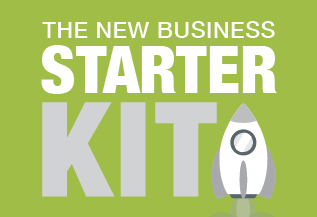What are the financial implications of sustainable business practices in 2023?
Get across the costs and benefits of going green
You don’t need to go out of business to save the world. Discover how a well-considered sustainability strategy can pay dividends for people, planet and profit.
The rise of sustainable business
Sustainability in business is no longer a trend but a business imperative. So, what is it exactly and why does it matter?
Simply put, sustainable business is the practice of operating a business without negatively impacting the environment. A sustainable business considers more than just profit, placing equal importance on the wellbeing of people and the planet.
So, why has sustainable business become so important? A few reasons:
- Customer demand, with many customers now happily paying a premium for sustainable and socially responsible products.
- Newly implemented regulatory commitments around environmental impact.
- The longevity of our planet.
Far from a fad, sustainable business has a crucial role to play in ensuring the future of a livable planet – and us as a species. We know it’s a must-do, but what are the financial implications of going green? In this article, we explore the potential costs and some surprising benefits.
Financial benefits of sustainability
Are you worried about how much sustainability will cost? Maybe you’re thinking it will be a deep, dark money pit? Think again. Of course, greening your business involves an initial outlay, but over time running a sustainable business actually has the potential to save you money and pay dividends for your back pocket.
Experience the financial benefits of going green by:
- Moving to energy-efficient tech – using more efficient lighting or implementing solar power will knock significant dollars off your energy bills.
- Reducing waste – get creative and reuse existing materials for other purposes, saving waste from landfill (and expensive disposal costs) and money spent on new materials.
- Optimising your supply chain – transitioning to a sustainable supply chain can positively impact your market share, stock price and profitability. It also mitigates risks associated with environmental and social issues like water scarcity, logging, and slave labour.
- Avoiding fines: do the right thing to ensure you’re compliant with environmental regulations and avert costly fines and penalties.
- Improving your access to finance: companies with sustainable supply chains and operations enjoy better access to external investment, finance and lower borrowing costs.
Improve brand reputation and customer loyalty
In 2023, polluting the environment, neglecting human rights and prioritising profit at all costs equals bad PR – and bad business. On the flipside, businesses that actively practice and publicise a sustainable business approach gain a clear competitive advantage.
Customers are increasingly interested and invested in sustainable products and services. It matters to the planet and therefore it matters to them. Going green shows potential customers you care too and creates a potent affinity that leads to ongoing loyalty – and even a willingness to spend a premium on your sustainable products and services.
By creating a brand identity anchored in green values, businesses enjoy increased sales, profit and market share.
Australian tax incentives and grants
So, you’re sold on going green, but how do you fund the transition? The good news – there’s plenty of help available.
There’s a range of grants, incentives and subsidies from the Australian government and other organisations to support sustainable business. Here are some examples:
- The Small Business Energy Incentive provides businesses with an annual turnover of less than $50 million with an additional 20% deduction on spending that supports electrification and more efficient use of energy.
- The Research & Development Tax Incentive aims to help businesses stay ahead of the curve and innovate by reducing a company’s income tax liability.
- The Clean Energy Finance Corporation (CEFC) is an Australian Government statutory authority that runs a range of programs targeting clean energy and energy efficiency, and partners with external organisations to provide funding.
- The Energy Efficiency Council’s Tax Incentives Guide outlines other tax incentives that can be used to facilitate energy upgrades.
Integration with financial planning and budgeting
In addition to useful grants and incentives, making sustainable business a reality requires some good old-fashioned financial planning. So, how do you integrate sustainability into your forecasting processes, balancing both financial performance and sustainability goals?
- Identify your goals – assess your current environmental impact and identify the key areas where you want to go green, setting realistic and measurable goals for improvement.
- Make a business case – align your sustainability goals with your overall business strategy, documenting how these goals can benefit your value proposition, brand identity, risk management and profitability.
- Plan and track your spending – allocate your resources and prioritise initiatives with the potential for greatest ROI. Track your spending and results, enabling you to adjust your plan if required.
- Keep an eye on the road ahead – anticipate future trends, tech and scenarios that may impact your sustainability strategy, so you can adapt and innovate to maintain a competitive advantage that delivers for both your business and the planet.
Managing the risks of sustainability integration
Of course, with significant transformation comes significant risk. When plotting your transition to green, ensure you keep three key risks front of mind:
- Changing customer and industry demand.
- Greener competitors – both existing and new.
- Evolving legislation and compliance regulations.
With so many businesses undergoing a sustainability transformation, the concept of sustainability risk management (SRM) is gaining momentum. SRM aims to ensure sustainable business practices are implemented without compromising the bottom line – enabling businesses to align their economic goals with their new environmental policies and processes.
Go green and get ahead
The importance and perks of going green in business are now black and white. With some smart investment upfront, sustainable business will pay dividends for profit, people and the planet. If in doubt about how to become a more sustainable business, it pays to get advice from an expert accountant who can plan your transition while integrating your sustainability goals with your financial plan.












